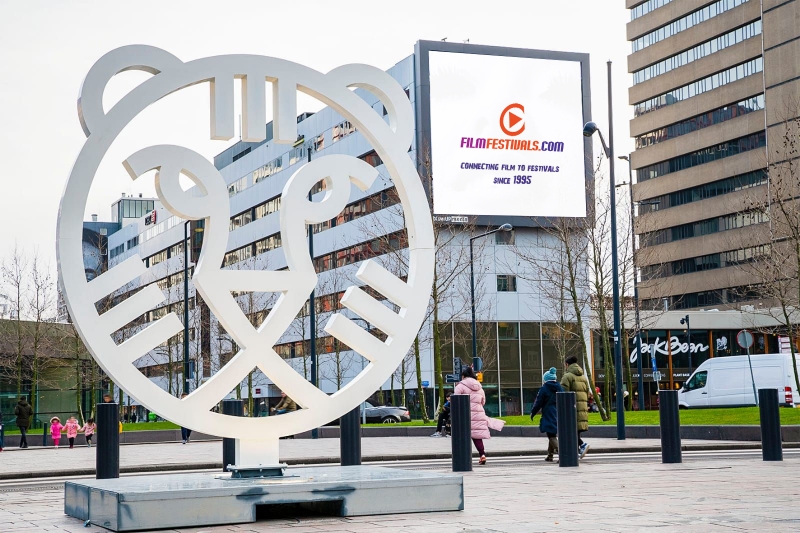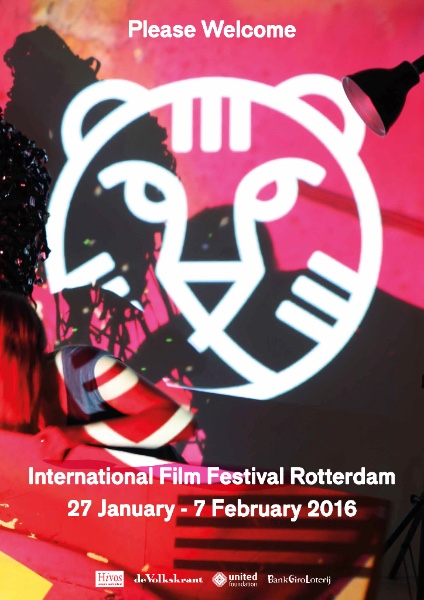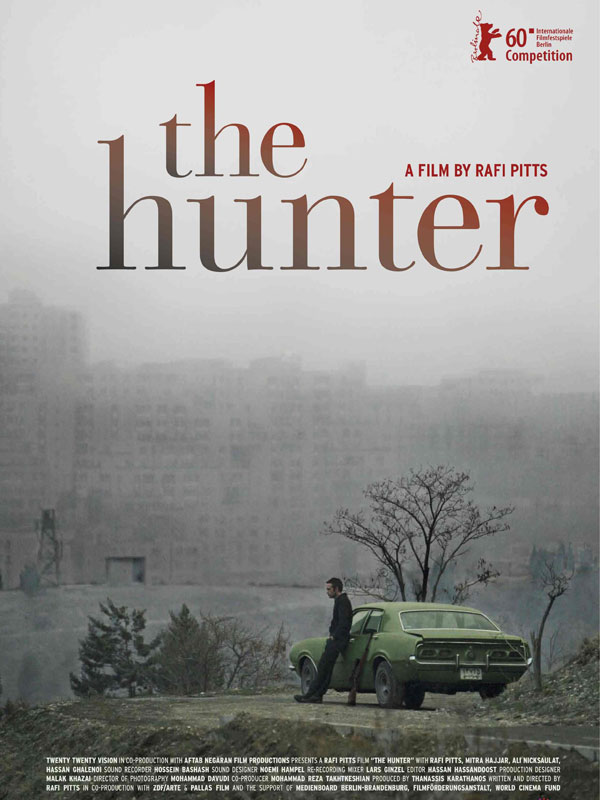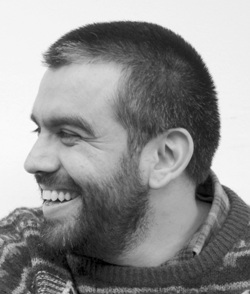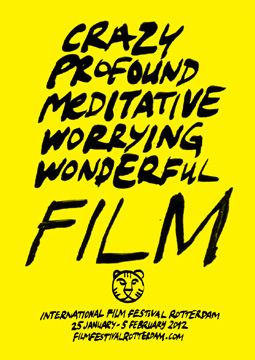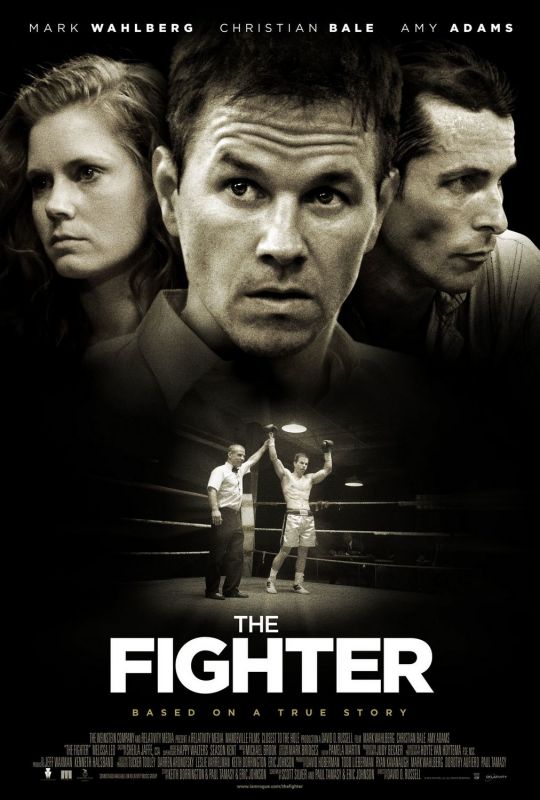Programmer Erwin Houtenbrink interviews Chris Petit. Thirty years ago, Chris Petit directed Radio On, now considered a road movie cult classic. His latest film, Content, is an ambient 21st-century road movie, an associative film essay inspired by driving’s trancelike state rather than any linear unfolding of the road.
Why are you using an actor (Hanns Zischler) for your own observations and comments in your film as a voice-over? What’s the purpose of this distancing device?
The text for Zischler was not written by me but by a writer named Ian Penman, for the simple reason that I did not want the film to consist of only my observations. Although ‘a film in the first person, I was not interested in one exclusively about ‘me’ --- hence the inclusion of Zischler and You Tube. I saw my role as more representative of a generation than as an individual.
I wanted thoughts on new technology of a poetic/philosophical nature. It struck me that the French theorists, some of whom are mentioned in the film, have been slow to pick up on cyberspace and the significance of email in terms of its displaced eroticism; so I asked Ian Penman, whose understanding of the subject is far in advance of mine, for a meditation on the emotional contradictions produced by this new technology. In keeping with the spirit of the film the correspondence between us was entirely electronic and we never met. The same with Antye Greie’s music - everything was done electronically.
Also I wanted something to represent the split nature of my own career, divided between writing and filmmaking: claustrophobia versus agoraphobia. Hence the contrast between driving and writing (or re-writing).
Is the title of the film in any way meant in a cynical way? Since content has become the word to describe that which is crucial to artists, writers etc., whereas it’s used nowadays by glib advertising & business men to describe something which is subordinate to all the rest: design, packaging, formatting, selling.
No, it’s not, but I am cynical about most contemporary art, which is distinguished by an absence of content. There’s also a wider crisis to do with the death of content: hence our title. This crisis is in part a result of a general acceleration to the pace of life resulting from new technology. The most obvious example can be seen in the widespread complaint about everything becoming dumbed down.
What would be more disconcerting in your view: people texting and checking their mobile phone all the time in a cinema watching Content, or watching Avatar?
Another aspect of living in an accelerating world is a shortening of attention span and fewer private spaces where it is possible to remain out of reach, including cinemas. Personally I find people texting in my presence more offensive than smoking. So, let them smoke in Content and text in Avatar.
Does the oft-proclaimed notion of the ‘death of cinema’ become more, or less, trivial as one grows older? And how do terms like irony, resignation and detachment enter the equation?
It’s irrelevant, or rather it is a recurring trope, as was the one about the death of the novel. It's an editorial argument. A paradigm shift has occurred with the introduction of non-linear technology and certain kinds of cinema are in decline anyway (the European art movie). For instance, in the context of English television, programmes about cinema have become more or less obsolete, as well as the screening of subtitled films. I suspect the Chinese still have quite a lot to say about cinema, and India, but not the English.
Irony is overvalued. Resignation is not really an issue; with the new technology there is no excuse not to make the film, even if it is only posted on You Tube. Detachment I am guilty of because I have never really belonged to English cinema or felt a part of it. If there is a bigger problem it’s the sense that everything has been shot to death: an image glut, vast electro-magnetic slums, total overload. I start to wonder about anti-festivals: non-art and non-celebrations in non-spaces, with non-readings, non-projections and non-appearances, especially as now it is no longer, strictly, necessary to have seen or read what you are referring to, only to be able to refer to it. Product has replaced content and everyone cultivates franchises in lieu of a body of work.
Do you consider your body of work as a series of separate entities, or would you prefer to see it as an ongoing travelogue of themes and ideas, images and sounds?
I wrote a novel Robinson (1993) which was obsessed with the idea and failure of trying to create a single piece of work from countless disparate sources, and with looking for the one single, perfect cut that made sense of all the rest.
Most writers rewrite the same novel, just as tennis players repeat the same shots. My work has tended to riff around certain themes and I have on occasion revisited previous sites. Radio On (1979) resulted in radio on (remix) (1998) and Content can be seen an informal coda to Radio On: 21st century road movie, ambient. Radio On ended with a car ‘stalled on the edge of the future’, which we didn’t know then would be Thatcherism. That historical span ended in 2008 with the financial crash. Content is both informed by that history and major changes in technology which have occurred in the intervening time. Radio On was made at the end of a period whose industrial process would have been recognisable still to the early filmmakers where the method now would be quite beyond them.
In 1979 the world was still linear and plots conditioned by such elements as people meeting. Making a film in 2009 it seemed to me that plots no longer needed to be linear --- the journey could go anywhere --- and in a virtual world it was no longer necessary to meet others. Also, with the development of the handy cam it’s possible to make films much more as though one were writing: la caméra stylo. It’s possible to be more thoughtful.
Having seen Content leaves me with a feeling of nostalgia. Do you yourself see it that way too? Or is nostalgia just too broad a term to sketch what you’re trying to accomplish? There’s a critique of the opacity, ugliness, negligence and vulgarity of contemporary, urbanized landscapes, but at the same time you revel in the image a camera from a moving car makes.
It wasn’t made in a spirit of nostalgia at all. Like Jonathan Richman said in his song Roadrunner (1976): I’m in love with the modern world. I much prefer the box and the industrial estate to a landed aristocratic one. I do attack the retro-nostalgia of modern architecture: this version for the future dressed up as the past which you see in English new towns and Dr Hans Stosberg’s wartime vision for the Nazification of the town of Auschwitz. On the other hand, Dutch domestic contemporary architecture remains exemplary by comparison. What interests me is not aesthetic judgement but a logging of perimeter landscapes of the kind most cinema overlooks. London’s elevated concrete motorway known as the Westway, which we shot in Radio On, radio on (remix) and Content remains very undervalued as a contemporary London image; J.G. Ballard called it ‘a stone dream’. I also believe that film studios, concentration camps and shopping malls belong to the same generic type.
However much everything has been shot to death I remain encouraged by how unobservant most cinema is. In many cases, it barely aspires to be a visual medium, only a form of recording.
Have you lived in Berlin? What exactly is your ‘German’ background?
I made two feature films in Berlin in the 1980s (Flight to Berlin and Chinese Boxes), so spent quite long periods there (when there was still a wall), then didn’t visit for many years. I liked it in the 1980s because it was full of very young and very old people with very few of the professional classes (they had all gone to West Germany). Now it is full of the middle-aged, and I rather miss the wall as a concrete sculpture, but it remains an entirely congenial city.
Do you have any affinity with the philosophical notion (Heidegger, Marcuse) of the alienation of man in contemporary society due to technological developments he was not part of to develop, and who is now destined to undergo these just to ‘keep up’? Is the fragmented experience of time (because of internet, twitter, the omnipresence of commodities, malls etc.) a threat to individuals in this day and age, do you think?
I’m not familiar enough with the notion to answer properly. Things accelerate. Things slow down and fall apart. That’s the way things are. Life has a variable offensive: going well on one level (work, love life) and not on another (health, stock market crash); or vice versa. I like the automobile because it is one of the last bastions of privacy but a Mad Max scenario isn’t impossible to envisage. I have enjoyed all the panic and denials of the last two years, just as I have always rather enjoyed the state of alienation: life seems to me entirely better for technological developments, which doesn't necessarily mean that it becomes psychologically easier. The most interesting (and compulsive) element of modern life is addiction. I have also noticed that the use of the word ‘no’ seems to be in decline, along with the right to remain silent. The desperate need to communicate seems pretty tiring to me. When did you last get an interesting email?
Is romanticism in danger of becoming extinct?
I think Romanticism in the sense of German or English Romanticism lasted a lot longer than is generally accepted and ran parallel to modernism. I think the 20th century will be looked back on as a Gothic age, which was not how it was seen at the time. At the moment we are undergoing big changes and it’s hard to predict (it’s always hard to predict). You could argue that romanticism is bound to disappear in a world so conditioned by lack of and invasion of privacy, and overdetermined by consumer appetite. But I am equally against the argument that the past was always better. I think the most necessary qualities for human existence have always included denial and self-delusion.
I personally feel that the disappearing, clear boundary between work and leisure could be described to be detrimental in some way or other, for one’s feeling of being content. Would you agree?
Zischler’s text mentions this specifically, and so does mine when it refers to how previous markers in rites of human passage have been removed, so everything becomes instead about deferral and postponement, which creates its own kind of suspense, some pleasurable, some neurotic, many addictive.




















